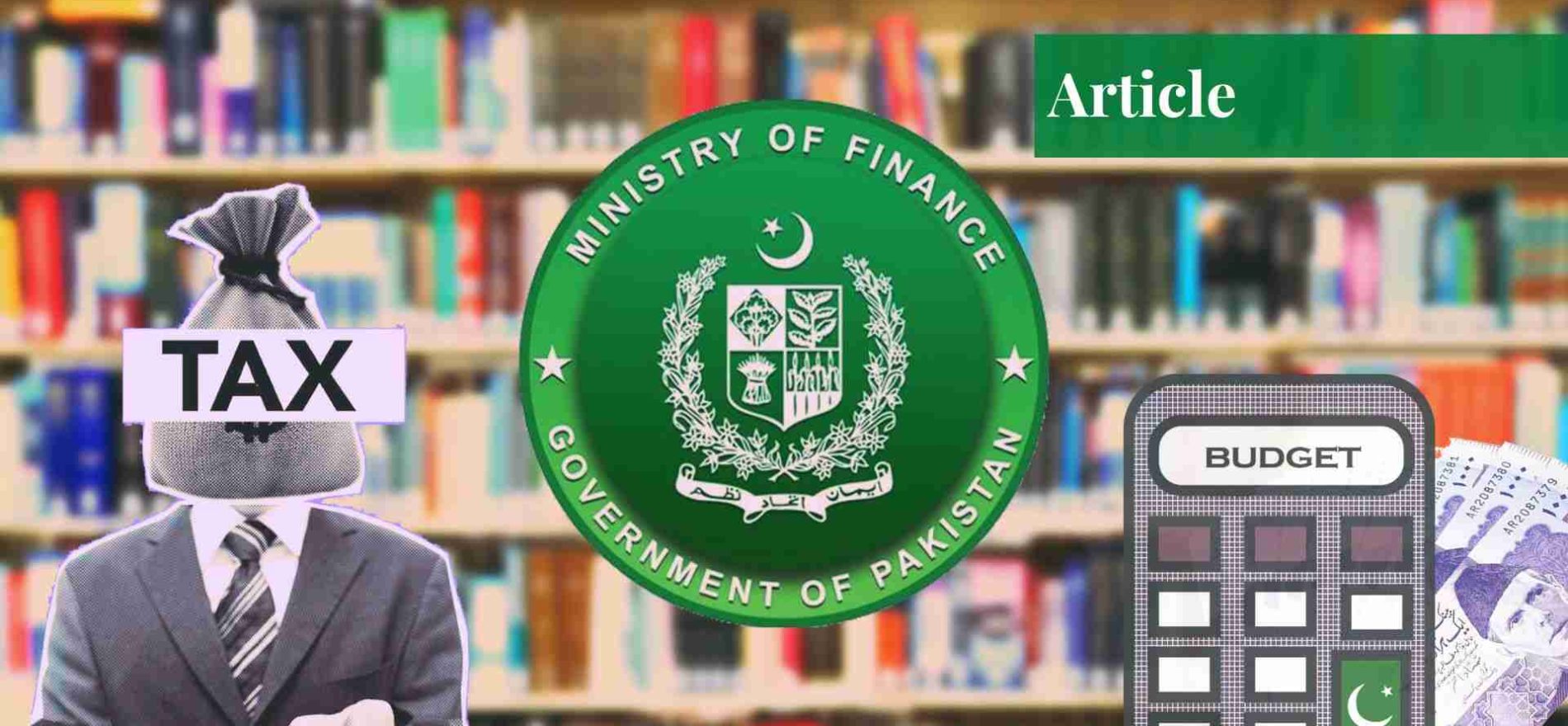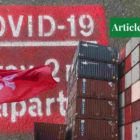Wasif Hassan is a rising law senior at Lahore University of Management Sciences (LUMS).
Procedural Failures
To approve the federal budget 2022-23, the motion for the consideration of the Finance Bill, 2022 was moved in the National Assembly of Pakistan. The Assembly carried on the general discussion for 10 days in contravention of Rule 187 of the Rules of Procedure and Conduct of Business in the National Assembly, 2007. The procedural lagging of the National Assembly is unsurprising, considering the chaotic situation created by our lawmakers.
It highlights the failure of our lawmaking institution to dispose of the matters on time and make room for other debates. It is one reason why Pakistan still lags in many areas of law because the purpose of Parliament shifts from lawmaking to appear better than the opposition.
It is crucial for the legislative process to account for the considerations raised by both the government and the opposition. It is the only way we can cater to the needs of the minorities generally and the opposition representatives who represent a significant faction of the country.
However, the amendments proposed by the opposition members were rejected after voting. It means that regardless of the substance of the amendments proposed, the lawmaking body of our country is not allowed to be efficiently representative, as it should be in a democracy.
Budget Summary
The total volume (resources and expenditure) of the budget amounts to Rs. 9.570 trillion. Out of it, Rs. 2,158 billion is allocated to the Public Sector Development Programme (PSDP).
The estimated fiscal deficit amounts to Rs. 4,547 trillion and the overall budget deficit is estimated at Rs. 3,797 billion which is lower than the 2021-22 and 2021-22 revised budgets by 1.4% and 2.2% respectively.
The gross revenue for the year 2022-23 is estimated to be Rs. 7,470 billion, greater than the last two budgets by Rs. 1,641 billion and Rs. 1,420 billion respectively. The nominal GDP is estimated to be Rs. 78.197 trillion compared to Rs. 52,867 trillion and Rs. 66,950 trillion in the last two budgets.
PSDP
The Public Sector Development Programme (PSDP) is an instrument used by the government to improve the country’s socio-economic conditions and achieve macroeconomic and development objectives and targets set by the government. As the name suggests, the development targeted through PSDP helps bring economic growth in the shortest possible time.
In the federal budget 2022-23 of Pakistan, there have been changes in the allocation of resources. The total federal PSDP is estimated to be Rs. 727 billion, a reduction of Rs. 173 billion from last year. The PSDP allocation for provinces is Rs. 1,431,786 million, an Rs. 196,786 million increase from last year.
Taxes
The estimated tax revenue is expected to increase by 17%. Of this, there is an increase of 37% in progressive taxes and a 63% increase in indirect taxes. The increase in sales tax is 44%. The government also plans to increase the petroleum levy by 456%. The sales tax has also increased from Rs. 2.506 trillion to Rs. 3.076 trillion, which would directly lead to inflation because of increased prices.
The income tax has increased from Rs. 2.182 trillion to Rs. 3.039 trillion. It means that disposable income will decrease, reducing the spending capacity of consumers. The effect on the aggregate demand, then, depends on government spending. However, the problem remains, as the sales tax increases prices and the income tax decreases the consumption capacity.
Another problem with the current tax regime is that the burden has been shifted to consumers and retailers. Pakistan needs to impose more progressive taxes rather than focusing on indirect sources. The goal is to set a higher tax on people in higher income brackets. In Pakistan, the poor suffer from increasing inflation, and the high-income earners are not substantially affected by the increase in taxes. Our government needs to impose progressive taxes so that the country can generate capital internally.
Education Still Neglected
Regardless of the statements and arguments of the lawmakers that the 2022-23 federal budget is a growth budget for Pakistan, the structural issues remain. The increased tax revenue is to be spent on the government’s targets to increase industrial productivity and reduce the fiscal deficit. It might be true that the budget helps the economy grow because of increased industrial productivity, but spending on education is necessary to achieve long-term growth.
The budget allocated to Education Affairs and Services is Rs. 90.556 billion compared to Rs. 91.970 billion in the 2021-22 budget. There is an increase in allocation to the Higher Education Commission of Rs. 1.729 billion compared to the 2021-22 budget. However, there are two problems associated here. Firstly, the budget allocated to education is a small chunk of the total budget. On the other hand, Rs. 1.563 trillion has been earmarked for Defense Affairs and Services.
The Defense budget has been increased compared to Rs. 1.370 trillion in the 2021-22 budget. It is equally important to increase spending on education, but the budget neglects it. Secondly, the budget allocated is not efficiently implemented because of the faulty structure of government educational institutes. The regulation of the budget allocated to education is intensely crucial in a country like Pakistan, where corruption and bribery are the subjects of controversy.
We live in a time where education is evolving, and newer and better ways of teaching are being adopted. However, the Pakistani system is still stuck with the old-dated rote learning methods. Investing highly in the education sector is imperative as a better education system will lead to individuals with specialized skills that will help the economy grow.
Although the GDP is estimated to grow, the budget fails to focus on supply-side changes that would cause an increase in national income and lower the inflation rate in the long term. Unfortunately, the governments Pakistan has experienced are more focused on showing short-term outputs to attract the voters to vote for them in the next general elections.
Spending on education is a high-priority subject. However, the spending on education does not see any substantial change. If the education sector proceeds as it is, it is a detriment to the growth of society. It is essential that the spending on education is increased and is efficiently deployed to better the government school systems.
The funding for education in the country remains drastically below the international benchmark of spending at least 4% to 6% of GDP on education or 15% to 20% of public expenditure on education. The government must try to bring supply-side growth by at least conforming to the international benchmarks for spending on education, leading to a stable economy in the long term.
If you want to submit your articles and/or research papers, please check the Submissions page.
The views and opinions expressed in this article/paper are the author’s own and do not necessarily reflect the editorial position of Paradigm Shift.


















